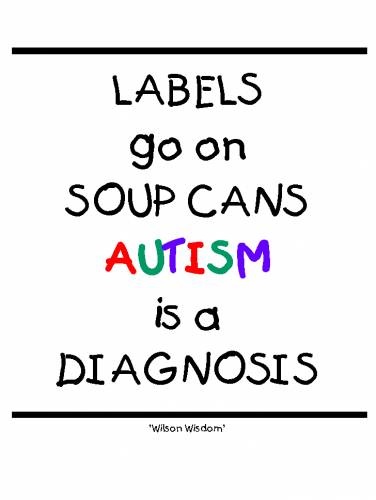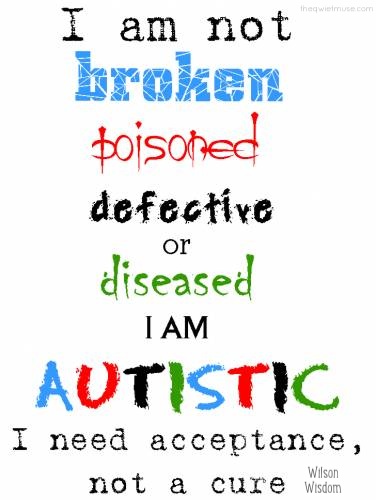*The following is based on personal experience and observation both with my own children and those I have advocated for in the past. I realize there are indeed success stories involving a smooth and beneficial transition from a special education setting to a general education one. Unfortunately, there are many more examples of the system failing.
The methodology behind mainstreaming special needs students into the general education classroom is too often poorly thought out and implemented. It takes too broad of an approach to the special educational needs of many students, and in doing so, only serves to hinder, not help.
Special education was created for a reason. For a population of students with different needs than many of their peers, different abilities which sometimes require a separate and unique forum in which they can learn, an environment better suited to meet their needs. The school system has been caught up in a whirlwind of state standards and testing, coupled with the need to be politically correct, it spells disaster for many of our children.
Over the years I have seen many school districts systematically take away the services our children need and are entitled to. Parents have to fight and go through due process hearings and mediation to get their children the educational services they are by law entitled to receive. The need for socialization has replaced the need for academic achievement. There are many ways to find a social balance between the mainstream and special education programs.
The term least restrictive environment is thrown around quite liberally to loosely justify taking aspects of special education away. The least restrictive environment is supposed to be just that, an environment in which a students social, emotional and educational needs are met without depriving them or restricting them from growth and development at their own pace.
In reality, what many educators are deeming to be the least restrictive environment for a learning disabled or mentally challenged student is, in fact, often the most restrictive and detrimental environment they could be placed in. The very best general education teacher will not be able to meet the needs of a student or students who require a different approach, one they most likely haven’t received the training required to teach. This only leads to frustration for the teacher as well as her students.
Many classrooms themselves are simply too overwhelming for the special needs student. The room may be too colorful, too noisy or have too much movement. The fluorescent lighting itself can cause havoc for a student with sensory integration disorder. 1 in 68 children have been diagnosed with an autistic spectrum disorder. Just those few things I’ve mentioned can be too much for them to handle.
If a students learning challenges are mild enough to be placed in the general education setting and they are thriving, then they are in the right place. If they are not thriving however, if they are overwhelmed and cannot keep up, or they are ostracized because of their differences, then they should not be forced to endure it for the sake of satisfying those who have jumped up on a soapbox of denial. We cannot make them fit in or adjust. The misguided notion which says we are preparing them for the real world by trying to assimilate them into a society that may or may not accept them, only proves to make the transition even more difficult for them.
Many mainstreamed children with special needs leave school feeling ashamed of who they are, feeling they were not good enough. How is that going to help them in this real world everyone keeps talking about? More and more students with special needs are failing to reach graduation, they are held back or worse, many drop out of school entirely. They are not being given the opportunity to learn many of the things they could be, and should be learning in a proper educational setting.
I find it odd that gifted children are given their very own society. There are advanced placement classes specifically for those with academic prowess which surpasses their peers. Why are they there? Because they learn things differently than the other students. Because the regular education setting did not provide them with enough of what they needed to maintain and challenge them. Why do we justify the segregation of these children while forcing others to remain in settings not suited for what is best for them?
Special education should be special education, separate and different from the mainstream, but there should be a bridge for those who are able and ready to cross over it.
As a mother of four children with varying degrees of special needs I have been involved in this debate for years. Since my oldest was two and half years old to be precise. He is now nearing 25 years old. I was trapped on the special education roller coaster for many years, and I must say, I did not enjoy the ride.
I think it best if the last word comes from someone other than myself, I would like to share with you the opinion of a brilliant, young autistic boy . . .
“It is not easy to be placed in a classroom full of kids that are not nice to you, who are sometimes actually mean. They don’t do it when the teachers can see or hear them and for some reason they are believed when they deny the deed. It is not easy to learn from a teacher who does not know how I learn and does not have the time to learn how to teach me. It is not easy to be in a classroom that is filled with colors and movement and noise and bright lights and constant changes.
A classroom best suited for me and many other students is one that is calming. One that does not display too many decorations and the lights don’t hurt my eyes or my ears. The fluorescent lighting in most classrooms make sounds that not everyone can hear. I need a classroom that has stability and structure and I need a teacher that knows the unique way I learn and has the time and training to teach me. I need a teacher that will tell me if there is going to be a change like a substitute or if the furniture will be arranged differently. These things are more important than being put in a classroom that I shouldn’t be in because someone who does not know what it is like to live with these things says I should be.
I resent the idea that these experts are trying to integrate us in with normal kids. Neurotypical does not mean normal. There is no such thing as normal. I do not truly care about what an expert thinks is best for me, I care about what really is best for me and for others just like me. I was in a regular education class and it was like daily torture. Thankfully my mother saw very quickly that something needed to be changed and starting fighting for those changes. I was able to go to a school with teachers who knew how to teach me, that were trained in the different abilities of their students.
There is room for socialization outside of school if we want it. That is something experts do not seem to understand. We DON’T always want it. You look at us walking alone on the playground talking to ourselves or stimming, you see us eating alone at lunch and think that we must be sad and lonely. Don’t you see that it is a choice for many of us? The schools need to stop taking away the freedom of kids like me. I will graduate from high school this year and I plan on continuing to change the way the special education system is structured because it is flawed. Thank you for your time.”
Wilson Cook
My son was 17 years old when he wrote this. He was completely removed from mainstream education in the 9th grade, he attended a special needs charter school through graduation. I attribute much of the success we have had to those special education teachers who took the time to really help him. My son was non-verbal as a child. I was told he would never learn and now he is the one teaching the lessons.
Crystal R. Cook
If you liked what you just read, like it, pin it, share it, tweet it, stumble it! Thank you!
 My son made me smile this week, something he does regularly, but this smile – this one is still in my heart. I’m filled to bursting with this smile because he took a huge step, he summoned his courage and he faced the unknown to do something he’s been talking about doing for a some time now.
My son made me smile this week, something he does regularly, but this smile – this one is still in my heart. I’m filled to bursting with this smile because he took a huge step, he summoned his courage and he faced the unknown to do something he’s been talking about doing for a some time now.





